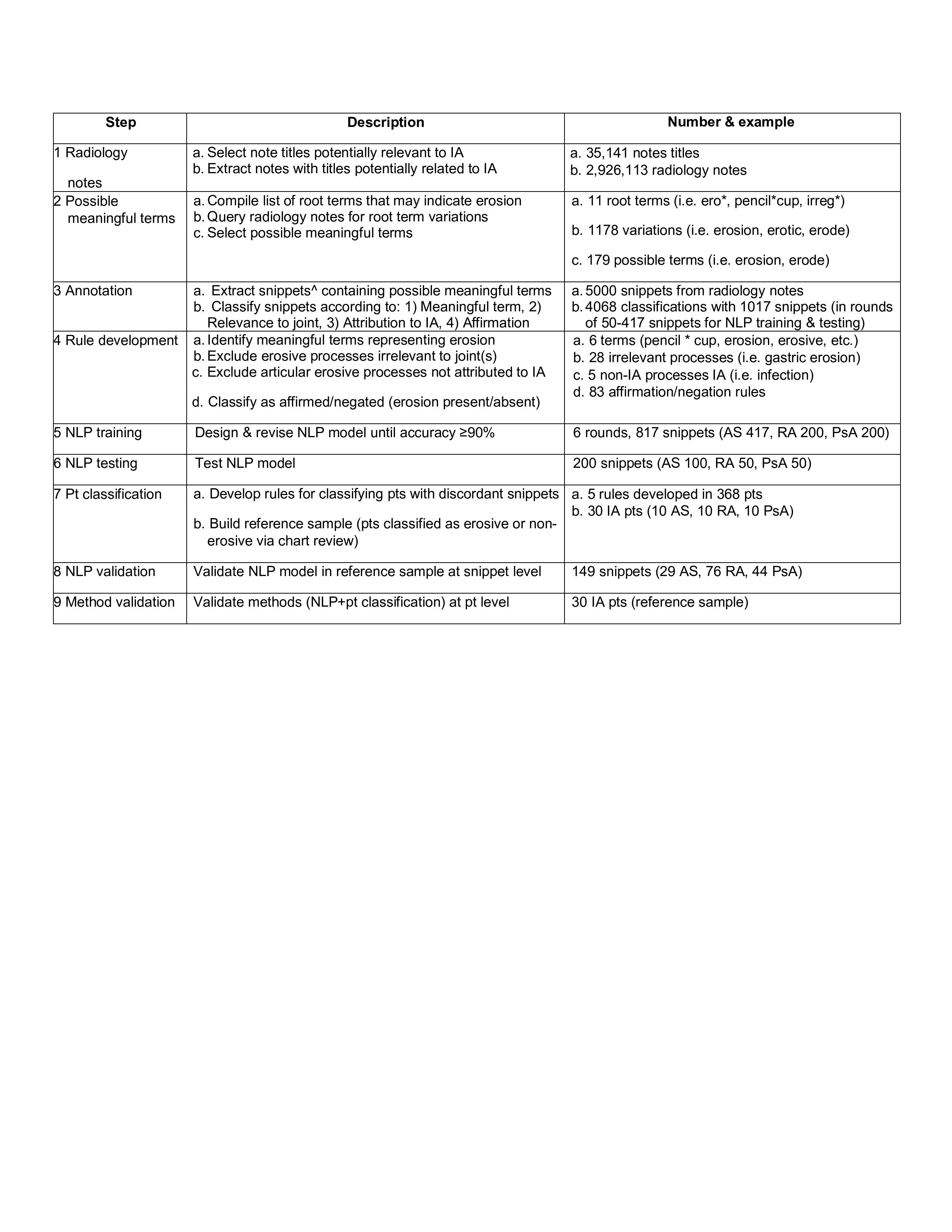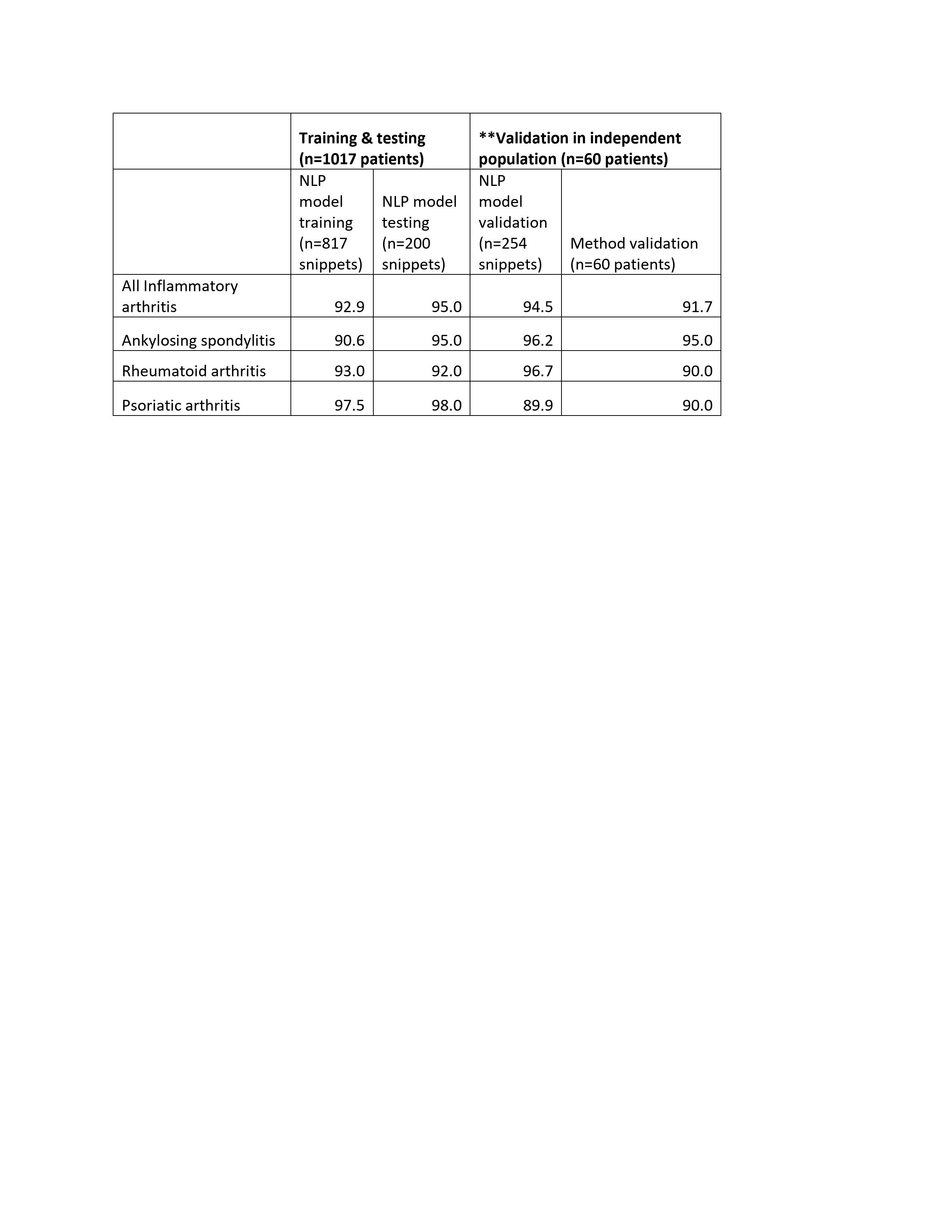Session Information
Session Type: Poster Session A
Session Time: 8:30AM-10:30AM
Background/Purpose: The presence of erosive disease influences diagnosis, management, & prognosis in inflammatory arthritis (IA). Inflammatory arthritis research in large datasets is limited by a lack of methods for identifying erosions.
The aim of our project was to develop methods for identifying articular erosions in radiology reports from veterans with IA.
Methods: Included veterans had ≥2 ICD codes for ankylosing spondylitis (AS), psoriatic arthritis (PsA), or rheumatoid arthritis (RA) between 2005- 2019, in Veterans Affairs Corporate Data Warehouse. Chart review & annotation of radiology notes produced the reference standard, & identified erosion terms that informed classification rule development. A rule-based natural language processing (NLP) model was created & revised in training snippets. The NLP method was validated in an independent reference sample of IA patients at the snippet & patient levels.
Results: In 168,667 veterans with inflammatory arthritis, the mean age was 63.1 & 90.3% were male. Method development involved radiology note & erosion term selection, rule development, NLP model building, & method validation. The NLP model accuracy was more than 95% at the snippet level & 90.0% at the patient level, for all IA patients.
Conclusion: The methods accurately identify erosions from radiology reports of veterans with inflammatory arthritis. They may facilitate a broad range of research involving cohort identification & disease severity stratification.
**Included 20 RA patients, 20 PsA patients, 20 AS patients.
To cite this abstract in AMA style:
Penmetsa G, Walsh J, Pei S, Sauer B, Douglas K, Walker J, Clewell J, Feng B. Identifying Erosive Disease from Radiology Reports of Veterans with Inflammatory Arthritis with Natural Language Processing [abstract]. Arthritis Rheumatol. 2021; 73 (suppl 9). https://acrabstracts.org/abstract/identifying-erosive-disease-from-radiology-reports-of-veterans-with-inflammatory-arthritis-with-natural-language-processing/. Accessed .« Back to ACR Convergence 2021
ACR Meeting Abstracts - https://acrabstracts.org/abstract/identifying-erosive-disease-from-radiology-reports-of-veterans-with-inflammatory-arthritis-with-natural-language-processing/



